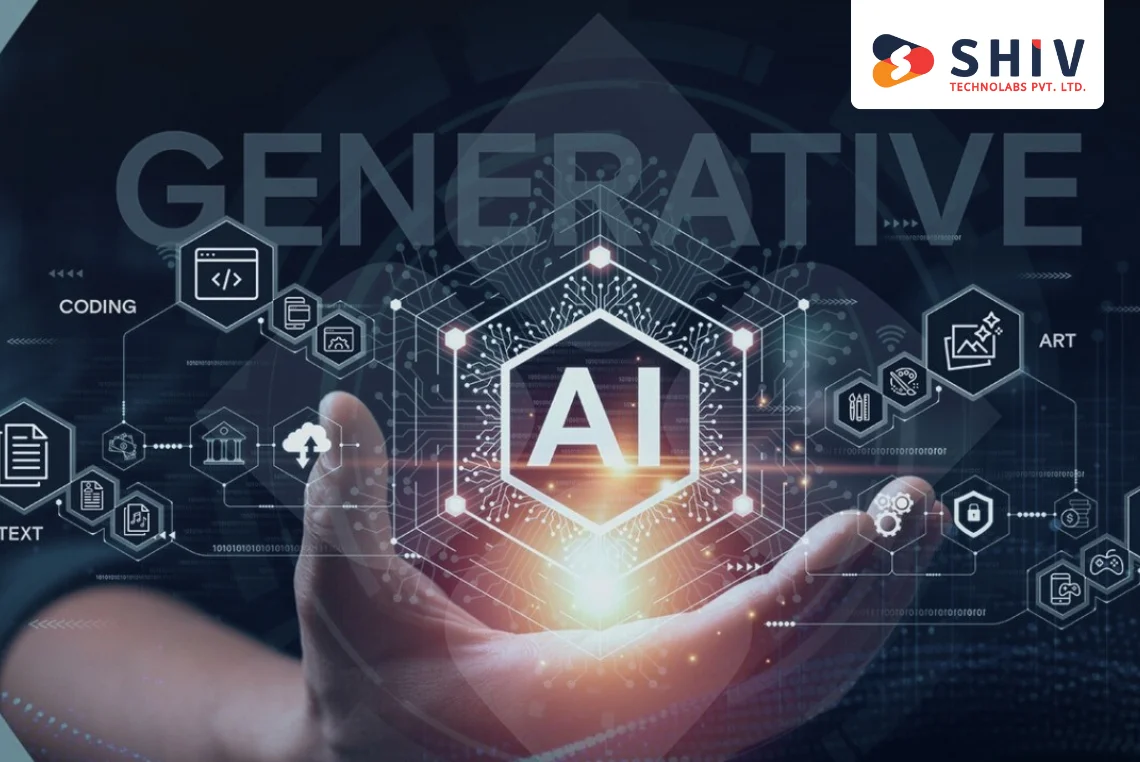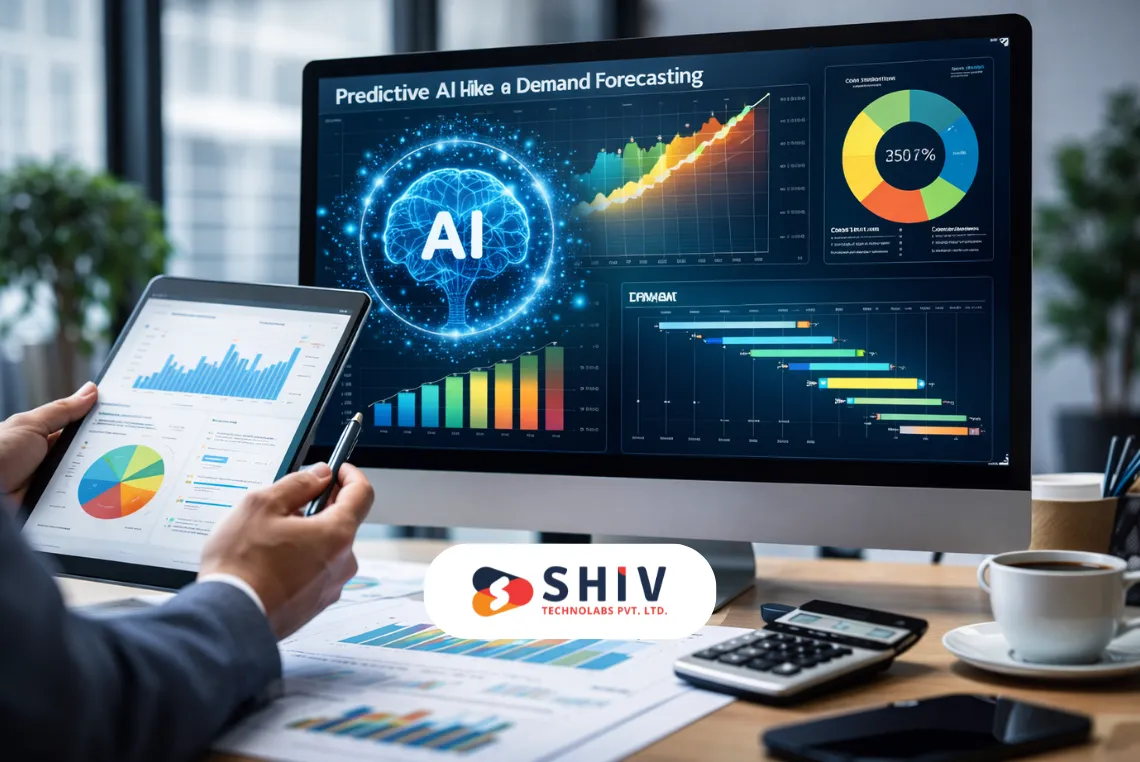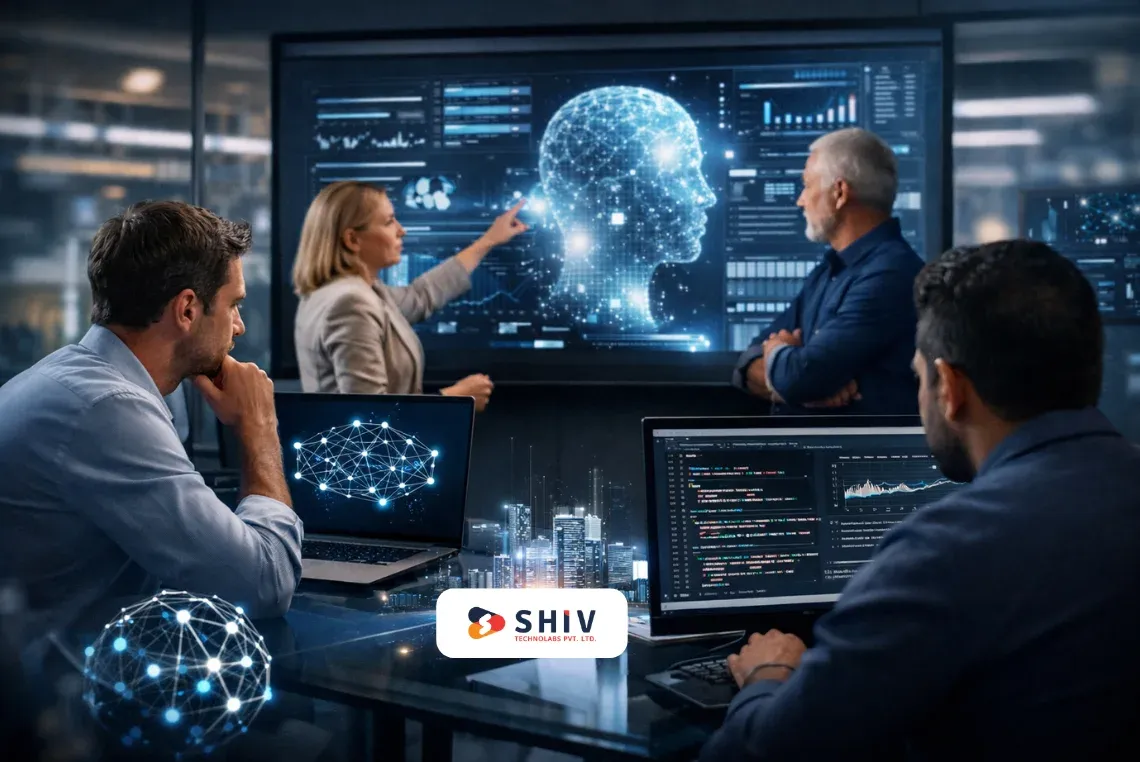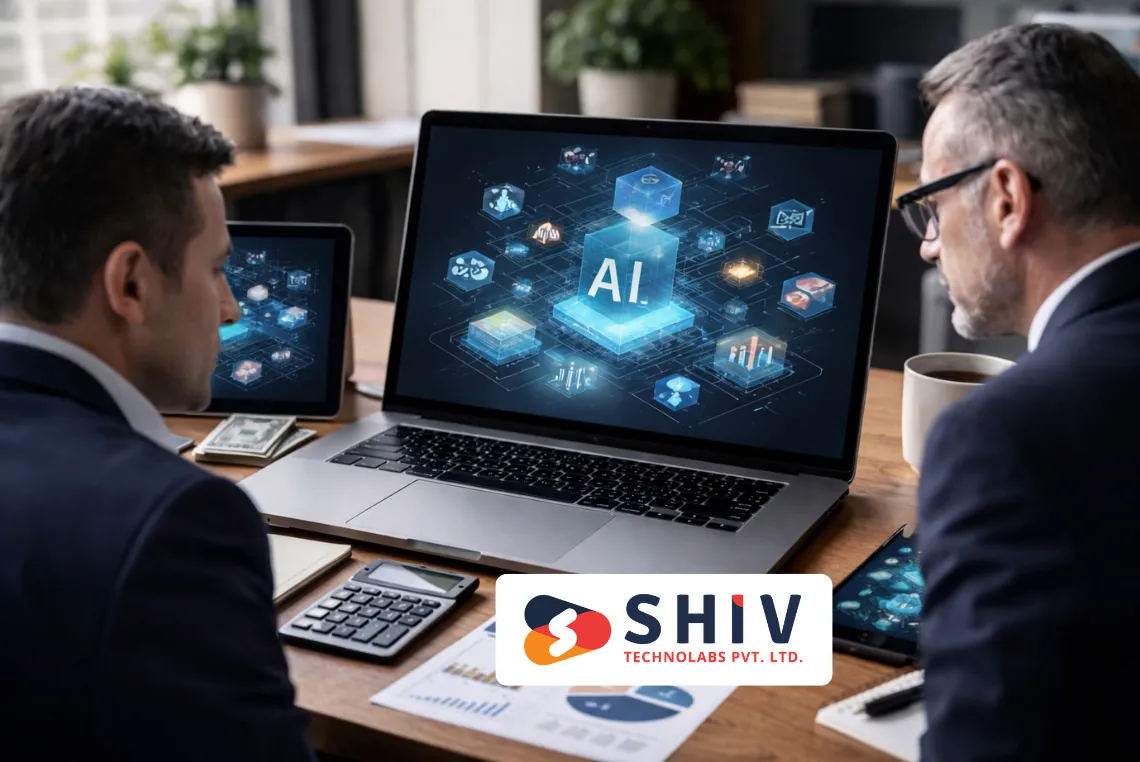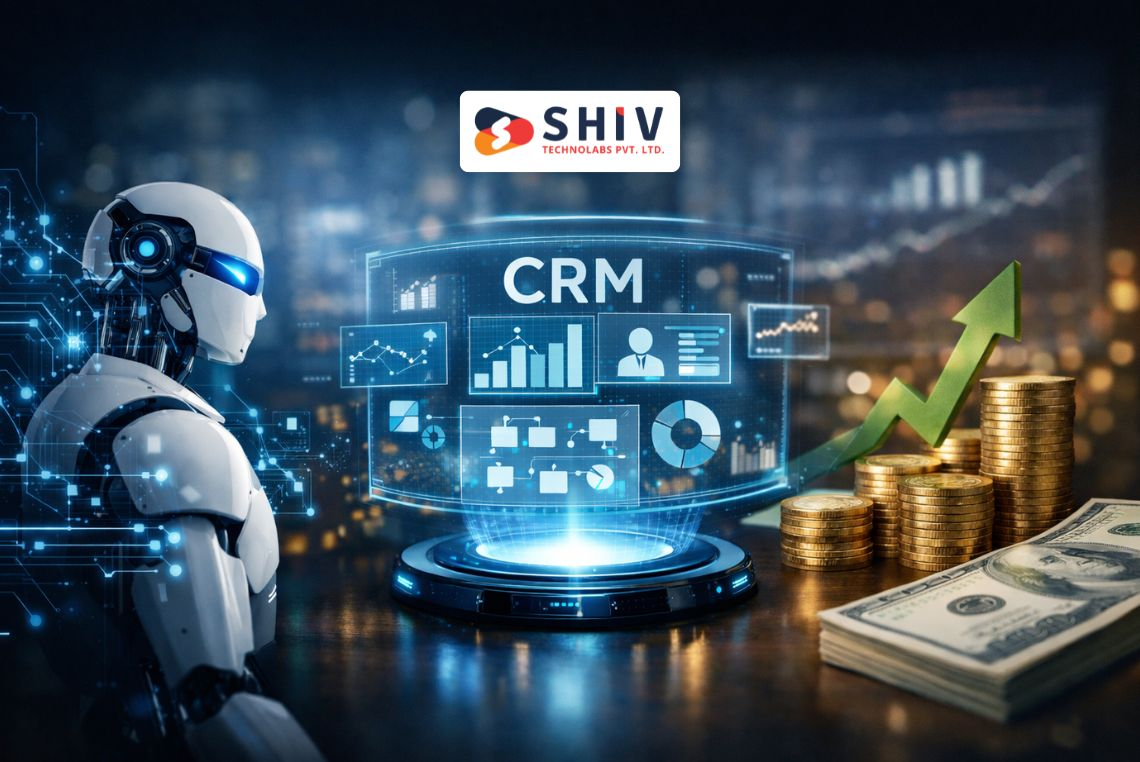Table of Contents
The current situation in most companies today is full of data but starved of decisions. Ventures are wasting days analyzing spreadsheets, waiting for reports, or managing endless approvals. The decisions are slow, the opportunities are missed, and the confusion is created.
Research indicates that over 80% of organizations continue to make calls based on old or incomplete data, which they still use in their strategic decisions. Stuttering is costly in such a setting.
This is being altered by the generative AI integration services. They enable business executives to make smarter and faster decisions by transforming the chaotic data into actionable insights.
Rather than wasting hours to find the appropriate information, AI provides patterns, predictions, and choices in time. The output is the confidence, accuracy, and agility of each decision-making level.
Why Decision-Making Needs a New Approach in the Digital Era
The digital transformation has brought two things: opportunity and overload. All business operations have become data producers: customer support, financial operations, logistics, marketing analytics, and employee performance indicators. The potential value is enormous, yet it becomes a liability if not accompanied by a smart system to handle all that data.
Data chaos
Organizations gather huge volumes of fragmented data from systems. There are tools and formats used by each department, and it is almost impossible to get a single picture. This creates duplication, confusion, and unreliable insights.
Manual bottlenecks
It is just impossible to sustain human-based decision processes. Analysts waste hours of cleaning and merging data, making presentations, and comparing variables by hand. The results are already out of date by the time they are available.
Human prejudices and inconsistency
People carry their own perceptions and suppositions even when presented with data. Judgment may be biased by confirmation or personal preference, or lack of visibility. In the long run, such minor discrepancies add up to bad strategy decisions.
The emergence of AI in the digital workflow
AI in digital processes alters decision-making. Rather than having human teams combine scattered data, AI systems process massive amounts of data automatically, identify trends, and reveal insights in real time. This implies that there is a reduction in time wastage in data management, and more of it is used in taking action based on the trusted information.
Consistency is also achieved through AI by eliminating the emotional aspect of decisions made and fatigue due to repetition.
The AI provides leaders with a clear picture of what is happening and what will happen, enabling them to make decisions more quickly. It involves restructuring contemporary organizations that fail to cope with complexity.
What Is Generative AI Decision-Making and How It Work?
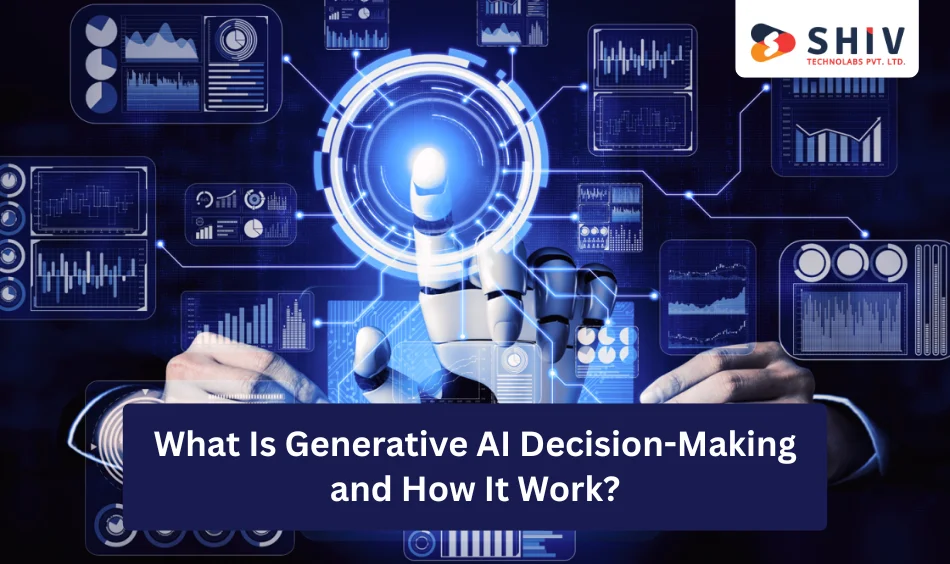
Generative AI decision-making involves applying AI models that can learn from existing data and generate new possibilities, insights, or recommendations to support business leaders.
Generative AI, unlike traditional analytics, which only informs you about what has happened, is used to predict what might happen next and what actions to take. Here is the process of generative AI decision-making:
Data collection
All AI systems start with data. Generative AI gathers and processes data acquired in various channels: sales, operations, marketing, customer interaction, and even external data such as market trends.
Model learning
After the collection of data, the model learns from it. It identifies associations, trends, and cause-and-effect relationships that are often overlooked by humans. The model uses past performance to comprehend which variables contribute to either success or failure.
Pattern generation
Once the system learns, it begins to make predictions or scenarios. As an example, when a company changes prices or supply amounts, the AI can make forecasts, allowing leaders to test the idea and make a commitment.
Real-time decision output
The AI keeps checking on live data once it has been deployed. It provides real-time recommendations or can even make automatic decisions upon the condition of the thresholds. It is where companies get to move at actual speed.
Generative AI decision-making is increasing at a rate that is even faster than any other digital trend, since it addresses the issue of delayed insight. It is not only being used by businesses to be efficient but also to remain relevant in the ever-changing markets that are transformed by the minute.
Also Read: How Generative AI Models Power Real-World Applications
How Generative AI Improves Business Decisions and Workflow Speed
Generative AI is not only an AI that improves analytics, but it is also changing the way decisions are made. It assists organizations to react more efficiently, act wisely, and be more precise. We will examine how generative AI enhances business decisions and hastens business operations in various fields. Here is a list of Key areas impacted by Generative AI:
Retail
Generative AI helps retailers analyze purchasing behavior, inventory levels, and external variables such as seasonality. The AI is dynamic in how it lowers excess inventory and maximizes profit margins. It is even able to forecast the future demand to maximise logistics and staffing.
Finance
Fintech companies and banks use AI models to monitor transactions. Rather than relying on end-of-day reports to identify anomalies, AI systems identify them immediately and raise a red flag in a few seconds. This will avoid losses, enhance compliance, and increase trust.
Healthcare
AI is used by hospitals to analyze patient data, lab results, and medical imaging. The system points out possible diagnoses or treatment options more quickly than manual analysis, which assists physicians with valid knowledge that conserves lives and expenses.
| Aspect | Traditional Process | AI-Assisted Workflow |
|---|---|---|
| Decision Speed | Slow and sequential | Instant, real-time recommendations |
| Accuracy | Influenced by human error | Data-driven and predictive |
| Cost | High due to manual labor | Lower through automation and optimization |
| Adaptability | Static and reactive | Adaptive and proactive |
| Workflow Optimization | Limited scope | Full-scale workflow optimization with AI |
The results justify why businesses are quickly transitioning away from AI-friendly management to decision ecosystems run on intuition. This benefit can be quantified in terms of time, expenses, and market performance.
How to Integrate Generative AI into Your Digital Operations
The potential of AI is one thing and incorporating it is another. The process should be well planned and entail a strategic approach to succeed. The following is a clear guideline on how to balance integrating AI with digital operations without interfering with current systems.
Determine decision workflows
Begin by tracing the points of decision most common in your organization. Some of the common areas are procurement, marketing campaigns, inventory control, and risk assessment. These are good points of automation and generating insights.
Combine AI dashboards and APIs
APIs help bridge AI engines to your existing software to enable the free flow of data. Dashboards visualize insights, predictions, and real-time measures, enabling teams to track performance and make informed changes.
Validate model performance
IGAI output should be verified prior to reliance. Check accuracy, monitor prediction quality, and measure bias using historical data. The model can be safely used to support the critical operations once it is validated.
Monitor real-time output
Constant follow-up is critical once it has been deployed. The generative AI systems compute over time; thus, frequent monitoring will make sure that they are accurate and used ethically. Monitor performance indicators and make changes to models.
Looking for an end-to-end setup? Our specialists make all processes of integration easy. Shiv Technolabs offers comprehensive generative AI integration services, including workflow identification, data connectivity, dashboard development, and live monitoring to ensure impeccable adoption.
Benefits of AI-Assisted Decision-Making for Businesses (2025)
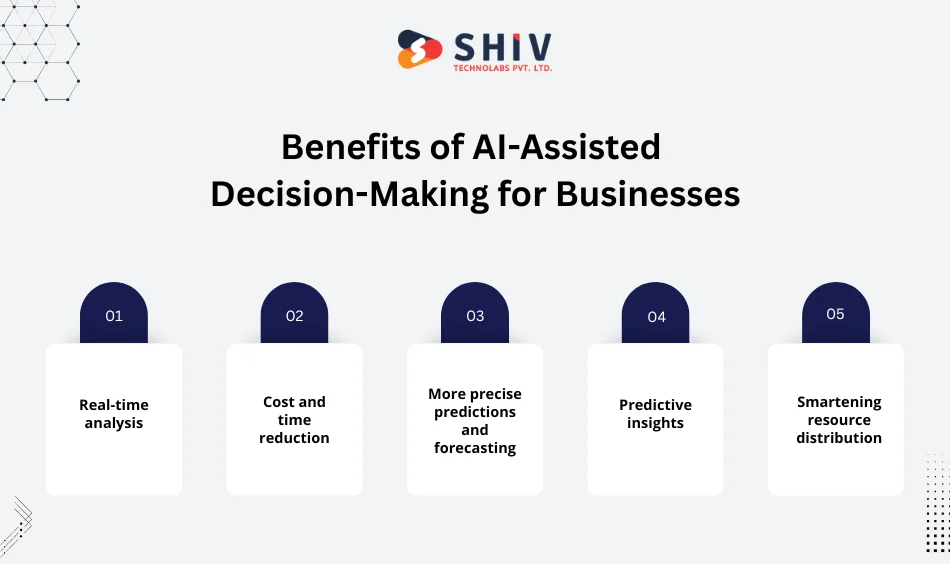
Companies that deploy AI to make decisions in the year 2025 are developing a visible competitive advantage. Now, let us discuss the advantages of the AI-assisted business decisions that are transforming industries.
Real-time analysis
Generative AI works on the data as it is generated. Companies can now see minute by minute as opposed to reviewing monthly reports. That enables instant corrections of courses, smarter investments, and more effective responses to unexpected changes.
Cost and time reduction
AI removes redundant tasks and the reliance on massive workforces of analysts. It reduces the duration of project life, increases the speed of the product launch, and limits waste in the operation. With time, this results in significant cost-effectiveness.
More precise predictions and forecasting
AI can identify trends that humans cannot detect through large amounts of data. The accuracy of forecasting is increased, planning is proactive, and risks are mitigated before they blow out of proportion.
Predictive insights
AI generation does not wait to manifest problems. It forecasts possible difficulties such as disruptions in the supply chain, equipment breakdowns, or market changes before they occur. This vision enables organizations to plan and prevent losses.
Smartening resource distribution
With a clearer picture and vision, managers can allocate resources where they are required. All the assets work harder, including the marketing budgets and manpower. Digital transformation AI also ensures that none of the efforts are squandered and all investments yield results.
Industry Use Cases: Real-World Examples of AI in Workflow Automation
Generative AI is already making tangible changes in how businesses operate. Here are some real-world examples of AI in workflow automation that show measurable success.
Logistics: Reduced route time and fuel consumption
One of the global logistics companies used AI to plan the delivery routes in time taking into consideration the weather, roads blockages, and delivery priorities. The outcome was a 20 per cent decrease in the cost of fuel and much shorter delivery times.
Marketing: Smarter audience targeting
Through AI, marketing teams can run ad variants in parallel, gauge engagement, and automatically allocate budgets to campaigns that are performing exceptionally. This has enhanced click-through rates and minimized ad spending wastage within industries.
Human Resources: Shorter time to choose candidates
AI assists human resource teams in scanning resumes, forecasting cultural fit, and shortlisting employees automatically. Instead of taking weeks to screen manually, the hiring cycles are reduced to days, enhancing the candidates’ experience and the company’s efficiency.
These are some of the ways in which generative AI can not only accelerate workflows but also make them more intelligent. Shiv Technolabs assists companies in duplicating such outcomes by creating artificial intelligence systems that are harmonious with the current digital systems.
Partner With Experts Who Build AI That Thinks Like You with Shiv Technolabs
At Shiv Technolabs, we assist companies in developing smart systems that can make wiser decisions in less time. We realize that the data, workflow, and objectives of each organization are individual and therefore our solution is completely customized.
What we deliver
- The implementation of AI and automation aims to establish smooth data exchange between systems.
- Anticipatory workflow design, which finds opportunities ahead of time.
- The creation of decision models and dashboards to gain clear and actionable insight.
- Continuous optimization assistance of AI to maintain the learning and progress of your systems.
Our team has both technical expertise and business insight, and your AI is not merely a potent tool but a useful one.
Future of Decision-Making With Generative AI
Human-AI collaboration will be the key to determining the future of decision-making. Complexity and volume will be managed by generative AI, while human beings will provide strategy, empathy, and human ethics.
The hybrid model
The hybrid decision systems will be applied in the most successful companies. AI will produce data-driven suggestions, and human beings will use judgment and creativity. This alliance is a way of balancing efficiency and emotional intelligence.
Information privacy and openness
Transparency is necessary as an AI system impacts important decisions in the business. Businesses should be fair, safeguard data privacy, and explain the outcomes of AI use. Accountable AI develops trust both internally and externally.
Artificial intelligence in business
Decision-making based on generative AI will enable a brand new set of business models: adaptive pricing, customized services, and self-optimizing supply chains. It is not merely a change in efficiency; it is a change in the way organizations think, act, and develop.
Conclusion
The new age of decision-making can be characterized by faster workflows, smarter insights, and scalable digital ecosystems. The use of generative AI is no longer an option, and it forms the basis of smart business development. Those companies that embrace it can act more quickly, minimize risk, and grow with assurance.
This change can be done safely and in a planned manner by collaborating with a reputable generative AI development organization. Shiv Technolabs is a generative AI development company specializing in decision-making systems that provide quantifiable outcomes. Through integration to optimization, our generative AI integration services will enable organizations to make smart decisions rather than relying on guesswork.
Discover how our professionals can help your enterprise leverage AI to achieve a new level of efficiency, accuracy, and performance on our website, www.shivlab.com. Your future is here to be made; make it faster, smarter, and more human.
FAQs
How does AI help businesses make faster decisions?
AI processes information in real time, identifies important information, and suggests the most appropriate course of action. This removes the delays in manual review and helps the teams to be prompt in their actions.
What kind of workflows benefit most from AI automation?
The greatest beneficiaries of any repetitive decision or high data volume workflow are marketing, logistics, finance, or operations. AI automates the routine steps and points at high-value actions to human beings.
Can AI be integrated with existing systems easily?
Yes. Current AI models can be integrated via APIs and data connectors with your existing ERP, CRM, or analytics applications. Shiv Technolabs develops solutions with minimal disruptiveness.
What is the cost of AI integration for businesses?
Price varies with information preparedness and the scope of the project. The majority of companies pay back within a short period of time, benefiting from enhanced accuracy, pace, and cost savings. Shiv Technolabs provides scalability services based on business needs and size.
How long does it take to implement AI workflows?
Complexity will vary during the implementation period. A small pilot may take a couple of weeks, while a full-scale project can take a couple of months. Using the structured approach of Shiv Technolabs, deployment remains quick, dependable and quantifiable.

